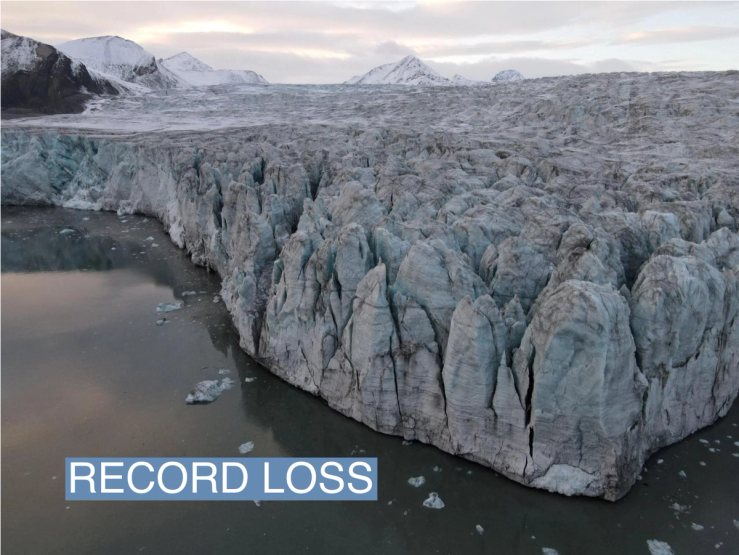The News
The melting of some European glaciers was “literally off the charts” in 2022, a U.N. agency said Friday, as Antarctic sea ice fell to its lowest extent on record.
The World Meteorological Organization found that glaciers lost 1.3 meters (four feet) of thickness between Oct. 2021 and Oct. 2022, the largest loss in the last decade, in a new report on the state of global climate change.
In this article:
Know More
The report detailed the rapid speed at which the world is heating and said in no uncertain terms that the effects of climate change are worsening.
Here’s what it found in 2022:
- Despite La Niña, a weather phenomenon that cools surface-ocean waters, the ocean recorded its hottest surface temperature, with 58% experiencing a “marine heat wave.”
- Europe recorded 15,000 excess deaths as a result of heat waves, while China saw its longest and hottest heat wave since records began.
- The world’s glaciers lost 1.3 meters of thickness in the year to October 2022, and nearly 30 meters in thickness since record-keeping began in 1970, an all-time low.
- Antarctic sea ice — that which forms and melts in oceans, as opposed to glaciers that form on land — dropped to its lowest level ever.
- Sea levels hit a record high: The rate at which they are rising has doubled since the WMO began satellite ocean observations 30 years ago.
- In Pakistan around 33 million people were displaced by extreme flooding.
Quoteworthy
“We have the tools, the knowledge, and the solutions. But we must pick up the pace,” U.N. Secretary-General António Guterres said Friday. “We need accelerated climate action with deeper, faster emissions cuts to limit global temperature rise to 1.5 degree Celsius.
“We also need massively scaled-up investments in adaptation and resilience, particularly for the most vulnerable countries and communities who have done the least to cause the crisis.”


